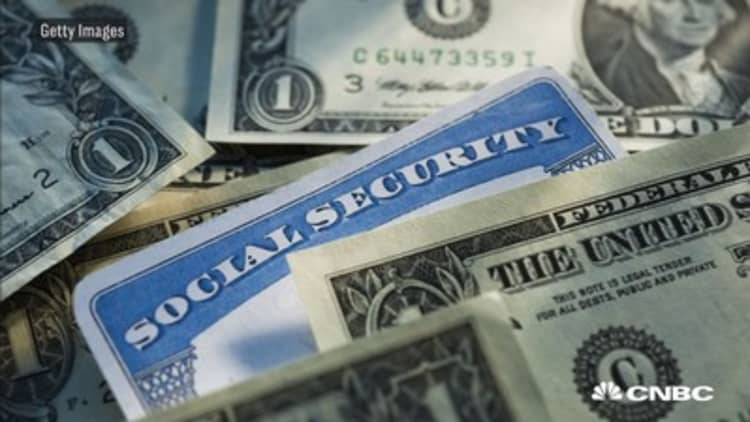Patience is a virtue. Or is it?
Few people who claim their Social Security early regret their choice, despite being aware of the financial benefits of waiting, according to a new report in the Journal of Aging Studies.
"This doesn't mean they thought it was the healthiest decision financially," said Lila Rabinovich, a co-author of the study and a researcher at the Center for Economic and Social Research at the University of Southern California. "It just means that it was the best decision at the time for them — that they couldn't have done things any differently."
The researchers held focus groups in Los Angeles, Virginia and Washington, D.C., in which they asked retired Americans who had already claimed their Social Security to reflect on the timing of their choice. Were they remorseful, or satisfied?

Most people were content with when they pulled the lever. The retirees often said the decision was highly personal, and unable to bend to any broad prescription.
While most of the people felt they'd made the right decision in the context in which they found themselves, many admitted they would have waited longer to claim if they'd been able to.
Indeed, a financial need was one of the most common reasons cited for why retirees claimed early. The average monthly Social Security check is $1,404, and more than 40 percent of single adults receive over 90 percent of their income from that check, according to the government.
"Well, I started calculating the Social Security, you know, here at 70 you would get this amount, which was far more than at 66. And so I was hoping to find work and it never materialized and didn't seem like any chance of ever happening, you know. So I filed for Social Security," one participant said.
Another frequent explanation given was a concern around how long they'd live.
"I realized that the African-American life span was shorter than other people, and especially black males. So, I decided I was going to retire at 62 even though my benefits would be lower," one of the participants said.
To be sure, research shows that older people tend to look back at their lives — as it happens, through rose-colored glasses. Other studies find people are less likely to regret decisions like this one that they can't unwind.
Such resignation might be useful, said Damon Jones, associate professor at the University of Chicago's Harris School of Public Policy.
"Since there's nothing that can be done about the Social Security claiming decision now, there may be a benefit in coming to terms with it and thinking about it in a positive light," Jones said.
Laurence Kotlikoff, an economics professor at Boston University and the author of "Get What's Yours: The Secrets to Maxing Out Your Social Security," was less sanguine.

"Most people are forced to take it early because they have no other choice — they weren't able to save enough for retirement," he said. "Then you have people rationalizing what they did."
Simply put, he said, most early claimers were missing out because your monthly checks will be three-quarters larger if you claim at 70 instead of at 62.
"Feelings don't come into play to an economist," he added, recommending people try to do whatever they can to hold out for those eight years. "Nobody on Wall Street would ever leave this opportunity untouched."
Still, Rabinovich said, these findings add nuance to our understanding of why people claim their Social Security when they do. "Maybe it's not the optimal decision financially," she said, "but it's the optimal decision in other ways."
More from Personal Finance:
This investment fee tax break is gone. Here's what it means for your IRA
Older Americans planning to downsize should brace for sticker shock
This threat could devour thousands of dollars from your estate


